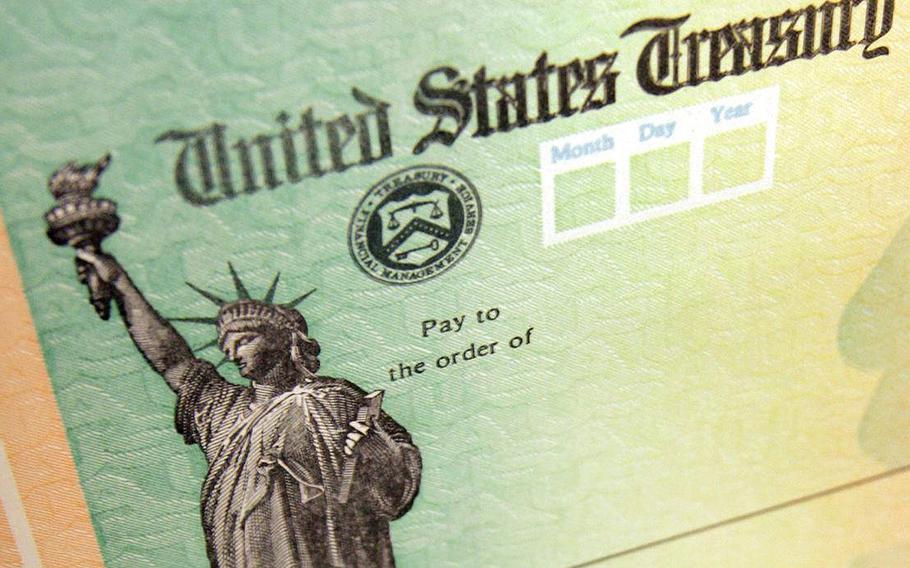
(TNS)
Stars and Stripes is making stories on the coronavirus pandemic available free of charge. See other free reports here. Sign up for our daily coronavirus newsletter here. Please support our journalism with a subscription.
WASHINGTON — While the first stimulus checks were distributed to some Americans this week, the Department of Veterans Affairs and the Treasury Department were still working on a method to get the financial support to many low-income and disabled veterans who would otherwise be left out.
Lawmakers and veterans organizations urged the departments to find a solution Wednesday, over a week since they first alerted the VA and Treasury that a “significant” number of disabled veterans and surviving family members may never receive the direct payments.
Their concern is for disabled or low-income veterans and surviving family members who receive monthly compensation from the VA but don’t file tax returns or benefit from Social Security.
The Internal Revenue Service is using the addresses or direct deposit information on file from Americans’ 2018 or 2019 tax returns to send the stimulus checks. For some, the VA payments are their only income. Those payments are not taxable, so the IRS lacks payment information for many veterans and families — potentially millions, advocates said.
The IRS attempted to fix the problem for veterans and other Americans who don’t typically file tax returns. The agency developed an online tool for non-filers to enter their payment information.
Lawmakers and veterans groups aren’t satisfied with the online tool as a final solution.
“This good move to begin assisting non-filers but should not be considered the complete fix,” said Joe Chenelly, national executive director of AMVETS. “There are many veterans, especially living in rural America, who do not have access to the Internet. There are many who will not know how to complete this form, or that the opportunity is available. There will still be wounded, injured and ill veterans left out even though they qualify. That is simply not acceptable.”
The VA is referring veterans and families to the IRS tool until a solution is found.
“VA is working with Treasury and IRS on a process to ensure non-filing VA beneficiaries will automatically receive their economic impact payments without filing a tax return or filling out additional paperwork,” VA Press Secretary Christina Noel said.
Fifteen senators, both Republicans and Democrats, sent a letter this week to VA Secretary Robert Wilkie and Treasury Secretary Steven Mnuchin, urging them to let Congress know of any barriers preventing the departments from finding a solution.
“If left unchanged, this may impose a burden on our heroes, and many veterans may never receive the financial support they need and have earned,” the senators wrote.
Congress approved a $2 trillion stimulus package March 27. The bill, intended to jolt the economy, includes direct payments to Americans, expanded unemployment benefits, loans to small businesses and a lending program for companies hurt by the pandemic.
The legislation provides direct payments of $1,200 to many Americans. The payments will decrease for Americans earning more than $75,000, and payments end for individuals making more than $99,000. Married couples that collectively earn up to $150,000 will receive payments of $2,400. Families will receive an additional $500 per child.
wentling.nikki@stripes.com Twitter: @nikkiwentling